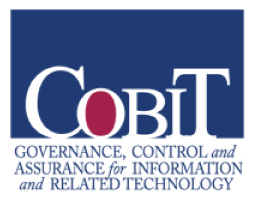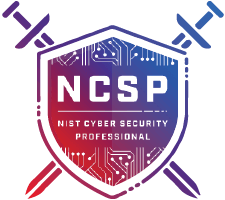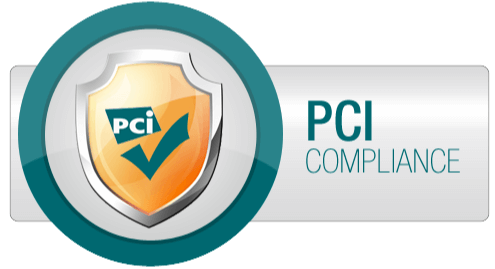Remember, it is relatively easy to teach social skills and provide social-emotional supports via web-based technologies. School districts need to be creative in figuring out new ways of reaching and teaching students.
Dr. Kurt Hulett Tweet this
Take-Away #1: The Law has Not Changed in Light of COVID-19:
The Department of Education has made it clear since the beginning of COVID-19 that the requirement of FAPE will continue as it has since 1975, although it may look different as far as how services are provided and determined.
As we move forward, it is believed that hearing officers and courts may offer some grace to school districts for the spring of 2020 and the implementation of IEP’s; however, this is only as it relates to the “how” of services. The expectation is still that FAPE must be provided as outlined in each IEP and progress toward goals are made and monitored.
Take-Away #2: Always Progress Monitor and Document Evidence:
The importance of progress monitoring was recently enshrined in the landmark Endrew F. v. Douglas County School District (2017) Supreme Court case. The High Court noted, “To meet its substantive obligation under the IDEA, a school must offer an IEP reasonably calculated to enable a child to make progress appropriate in light of the child’s circumstances.” The High Court continued, “A child’s IEP need not aim for grade-level advancement if that is not a reasonable prospect … every child should have the chance to meet challenging objectives … It cannot be right that the IDEA generally contemplates grade-level advancement for children with disabilities who are fully integrated in the regular classroom, but is satisfied with barely more than de minimis [trivial] progress for children who are not” (emphasis added).
The issue of progress monitoring has been identified as one of the most critical issues to come out of the Endrew F. case, and one issue that has the potential to place school districts in hot water. Legal experts predict that the field of special education, post-Endrew F., will see an increase in state complaints and due process cases around the issue of progress monitoring. At the end of the day, and at a minimum, school districts must follow each and every child’s IEP, document the services provided, and document the progress made toward goals and objectives.
Take-Away #3: If Confusion or Lack of Clarity Exists in the IEP — Take Action and Revise
According to the panel, every school district should have a robust plan to ensure the implementation of FAPE. It is clear, however, that certain behavioral goals — which were written for implementation in a classroom interacting with other students — will be impossible or extremely difficult to implement and progress monitor in virtual environments. In these circumstances, the panel recommends reconvening the IEP team and amending the IEP goals and/or short-term objectives. The new goals and objectives need to focus on the unique needs of the child and take into account his or her physical setting. If virtual, each and every goal should appropriately address each child’s needs, while also being relevant and reasonably progress monitored.
Remember, it is relatively easy to teach social skills and provide social-emotional supports via web-based technologies. School districts need to be creative in figuring out new ways of reaching and teaching students.
Take-Away #4: Student and Parent Engagement is Critical
Parents and students need to be provided with the instruction and supports to develop the skills necessary to advocate for themselves. Schools should reach out to families and offer training in the area of self-advocacy. So often we expect students and parents to inherently possess these skills, whereas the great majority of the time they simply need to be taught the skills. In addition, parents of children with behavioral challenges may be facing increased and elevated levels of stress as they are losing daily (in-person) supports, in addition to being the primary provider of daily supervision and even, potentially, instruction.
Schools need to reach out directly and regularly to both parents and students to see how they are doing and to see what the school can do to support them. Even if it is simply engaging in conversation and providing human interaction, these touch points can go a long way to supporting folks in a homebound environment. Remember, parents want the absolute best of their children, but sometimes they need support to know how to best proceed. As well, the regular touch points can help teachers to evaluate the mental and emotional health of students and to continue to assess his or her needs. We must remember the importance of human interaction and direct communication during this new norm.
Take-Away #5: Virtual Doesn’t Have to be Less
Unfortunately, due to many variables and perceptions, virtual instruction and services are often considered inferior and less desirable to in-person learning. In many circumstances, the services that have been traditionally provided have only been done so in-person. As we focus on the individual needs, however, of each child — in particular students with behavioral challenges — the panel noted that many kids are actually flourishing with virtual learning.
Many students come to school with social anxiety and other disorders that are aggravated by significant over-stimulation; therefore, a number of students nationwide are adapting well in this new environment. By removing the social and behavioral challenges presented for some students during in-person learning, they have more capacity, time, and energy for learning new skills and content. If we look closely, we can find silver-linings in even a pandemic!
Learn more about how RethinkEd’s Social Emotional Learning Platform, Skills Platform, and Behavior Success Suite serves students, educators, and families in fully remote learning environments. If you’re a school leader that would appreciate a look at how our team could serve your community, request a demo.
About the Author

Dr. Kurt Hulett
Author, Special Education Advocate
Dr. Hulett is a leading special education advocate and educational consultant based in Central Texas. He works extensively on behalf of children and families engaged in the IEP and Section 504 process. He is well-known for his ability to navigate difficult situations and secure the educational services, goals, and desired outcomes for the parents and students he serves. In addition, he trains principals and administrators in the utilization of both best practices and legal approaches to special education management. Dr. Hulett is the author of the best-selling text “Legal Aspects of Special Education.” He is committed to helping all stakeholders meet the needs of students with disabilities.










